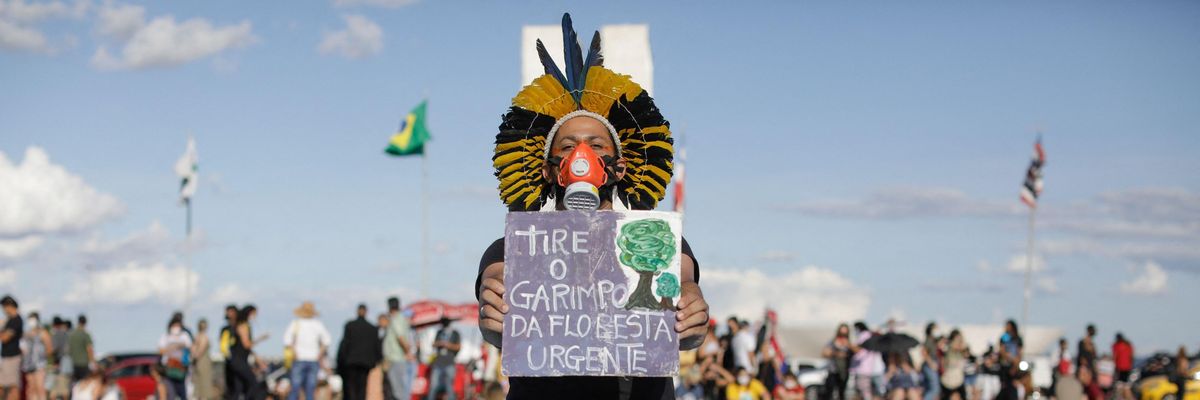Environmental and Indigenous rights defenders on Tuesday welcomed a Brazilian court ruling that will continue to block a Canadian company from building what would be the South American nation's largest open-pit gold mine in the Amazon rainforest.
"Belo Monte already has had a major impact on the Xingu. A second project could mean the death of the local peoples."
In a 3-0 decision, the Federal Regional Court of Brasilia on Monday upheld the suspension of an environmental license for Belo Sun Mining Corp., affirming a 2017 ruling that found the company failed to adequately consult with Indigenous peoples on the social and environmental impacts of an $800 million project located in the Volta Grande do Xingu region in the state of Para.
"My community wasn't consulted about the Belo Sun project," Lorena Curuaia, a leader from Iawa village, told the Associated Press.
Referring to the world's third-largest hydroelectric dam--located just 12 miles from the proposed mine site--Curuaia added: "Belo Monte already has had a major impact on the Xingu. A second project could mean the death of the local peoples."
Federal prosecutor Felicio de Araujo Pontes Jr. called the ruling "another victory for the Indigenous and riverine people of Volta Grande do Xingu," who "know that a mining project can have devastating impacts on the region."
"The judgment shows the resilience of this population," he told the AP.
Advocacy groups warn that Indigenous peoples--including Juruna, Arara, Kuruaya, Xipaia, and others--would suffer serious direct impacts from the Volta Grande project.
As the Interamerican Association for Environmental Defense (AIDA) detailed:
According to experts, the Belo Sun mining project in Volta Grande do Xingu has serious structural flaws which were not clearly presented to the impacted communities during the consultation process. Environmental impact studies carried out by the mining company disregard both the potential seismic impacts on the tailings dam that needs to be built and the cumulative impacts it would cause along with the dam of the Belo Monte plant.
The dam designed for the mine would be similar in size to the Vale dam that collapsed in Mariana in 2015, causing Brazil's biggest environmental disaster. A report by an expert in geology and mining, Dr. Steven H. Emerman, claims that at least nine million cubic meters of toxic mining waste could reach the Xingu River and travel more than 40 kilometers in two hours, causing irreversible damage. These tailings could contain highly toxic metals, such as cyanide, arsenic, and mercury, which could lead to ecocide of the Xingu River.
"Other studies point to impacts such as changes in the reproductive cycle of fauna, deforestation and/or burning, pollution of water resources, and soil contamination," AIDA added.
The court ruling came as a series of bills backed by Jair Bolsonaro, Brazil's right-wing president and self-described "Captain Chainsaw," advance through the National Congress. If passed, critics say the so-called "package of destruction" would allow mining on Indigenous lands, relax restrictions on the use of pesticides, and encourage illegal logging and land seizures.

